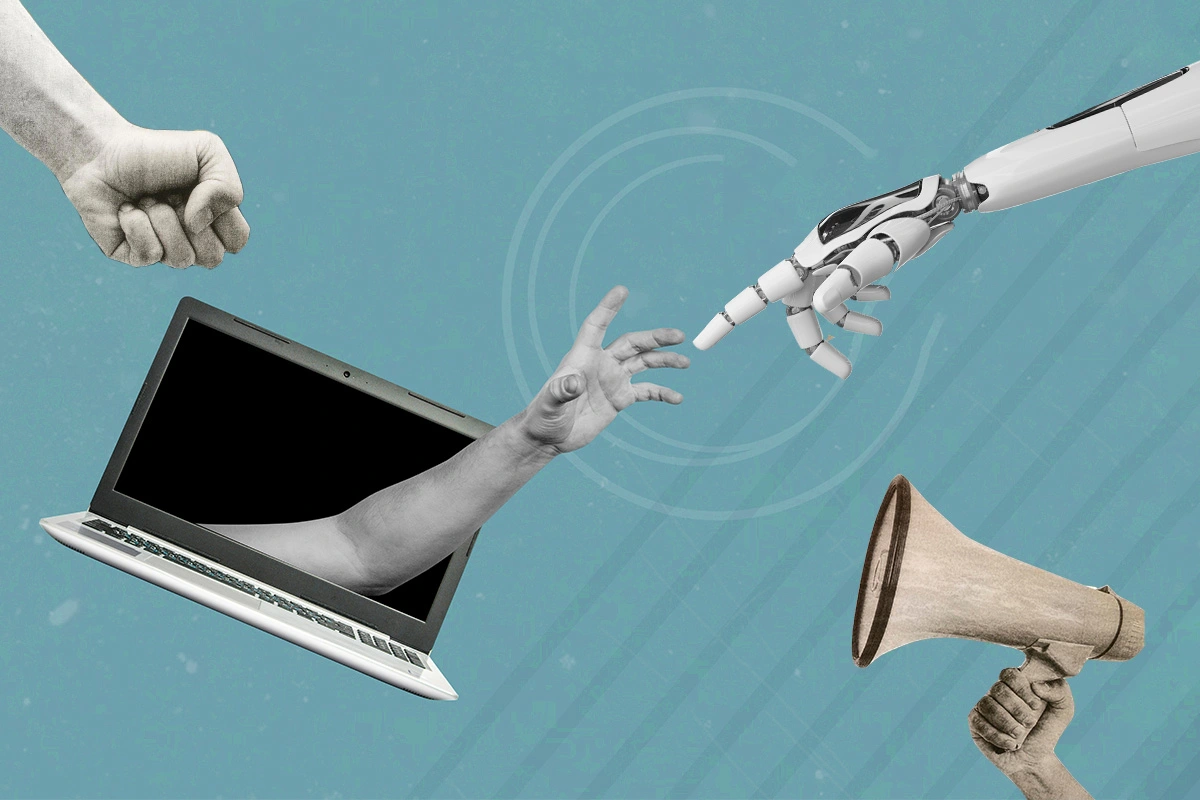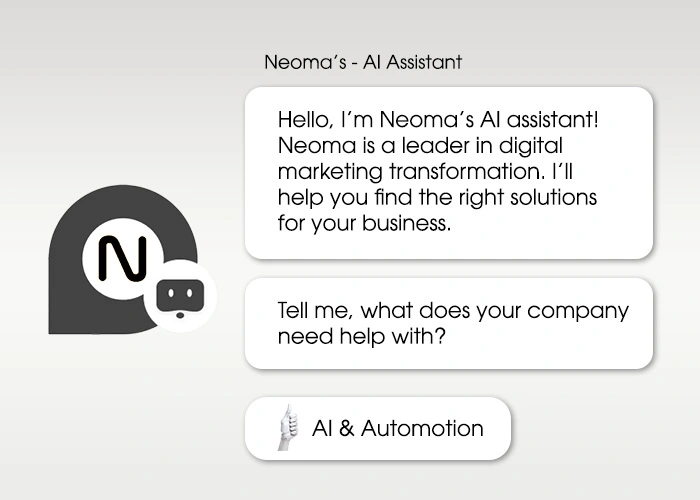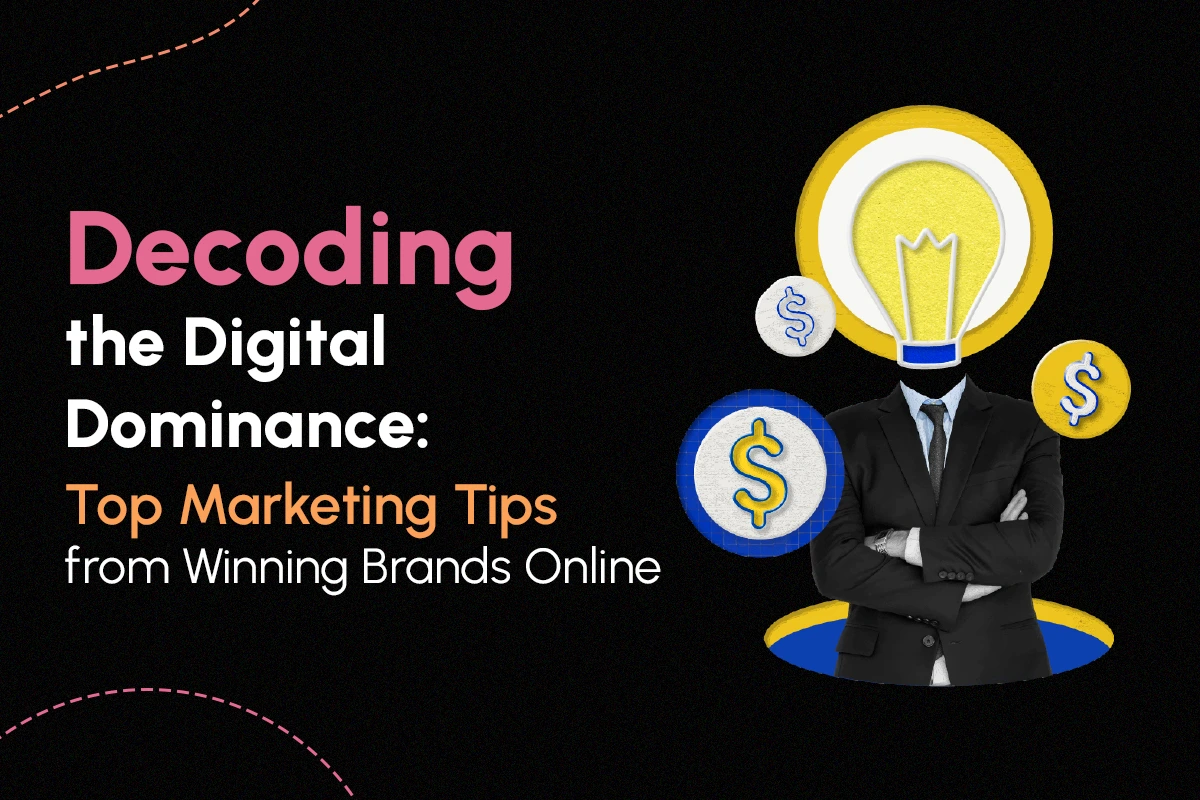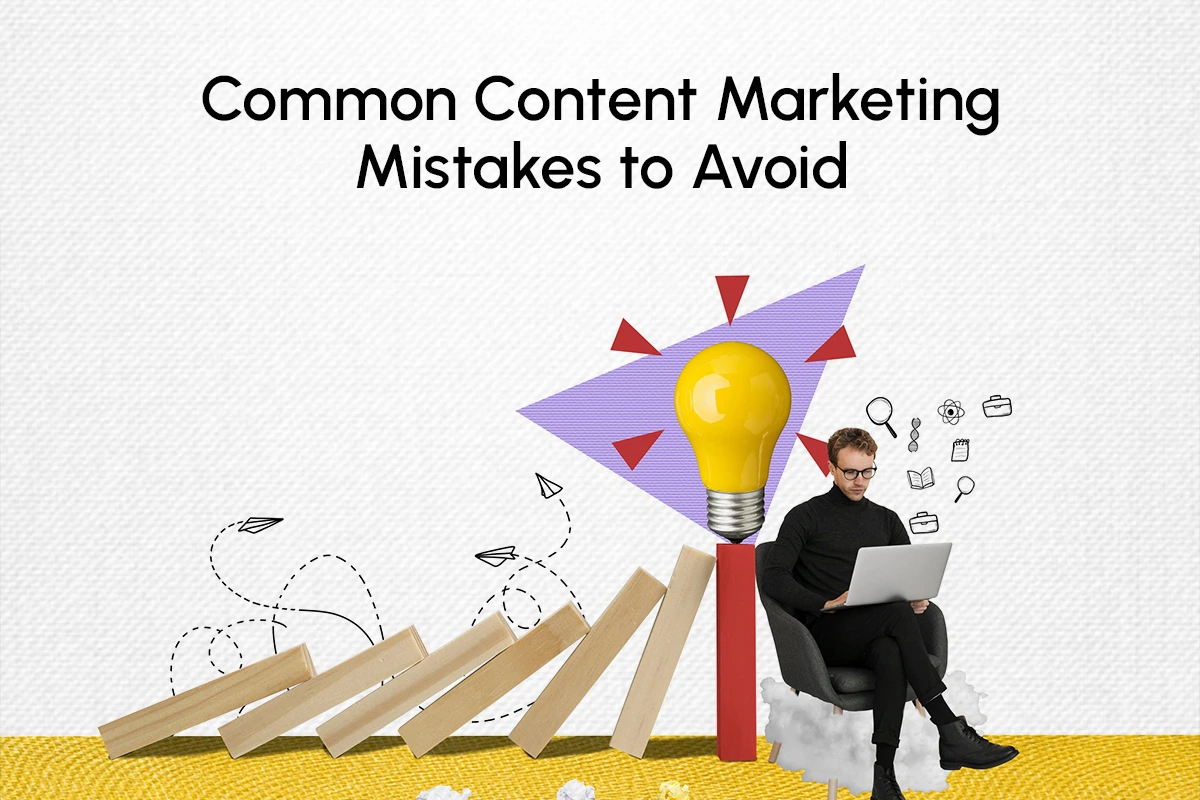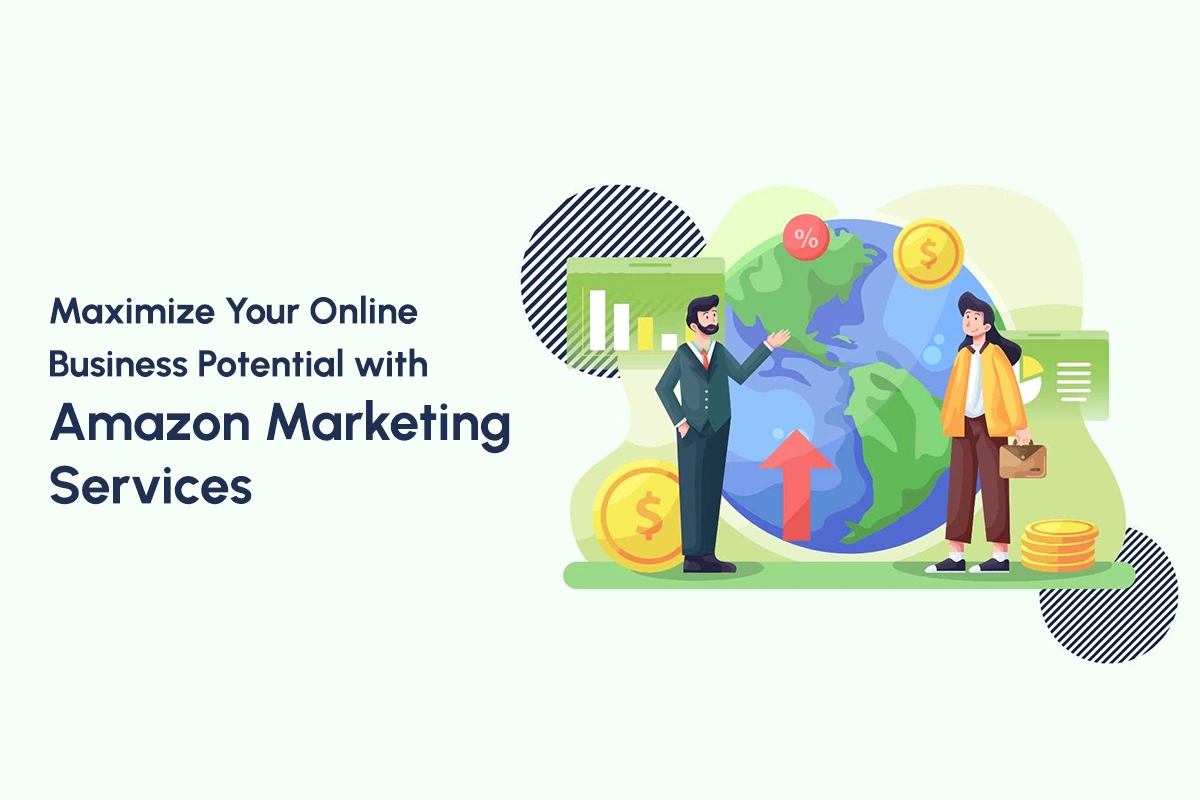Artificial Intelligence (AI), which seemed like a far-fetched concept, is now an actual thing in the rapid digital world. It carries the potential to transform different industries including marketing. To stay competitive, marketers must become knowledgeable about and employ AI.
Check out How AI powers revolutionising marketing.
AI is definitely changing marketing in several ways. The following important domains are where AI is having a big influence:
Personalization:
AI helps businesses to provide clients with very customized experiences. AI can forecast consumer preferences and behaviour from a plethora of data, enabling marketers to customize their offerings and communications. Personalization this high was previously unachievable with conventional marketing strategies.
Customer Insights:
Analytics technologies driven by AI process and understand data significantly more quickly than people can. These instruments give marketers useful insights by pointing up patterns and AI marketing trends in consumer behavior. This makes marketing tactics and decision-making more intelligent.
Automation:
Repeated chores including email marketing, social media posting, and ad management can be managed by AI-driven automation systems. Along with saving time, this guarantees accuracy and consistency in marketing efforts. AI manages repetitive tasks, freeing up marketers for strategic planning and creative efforts.
Content Creation:
AI might propose subjects, create initial versions, or write entire parts of material. This expedites content production and keeps a consistent supply of excellent material, which is essential for attracting readers and improving search engine optimization.
Customer Service:
By offering quick, around-the-clock assistance, chatbots and virtual assistants driven by AI are completely changing customer service. Simple FAQs to complicated problems may all be handled by these systems, which raises customer satisfaction and frees up human agents for more important work.
Predictive analytics is the ability of marketers to forecast future trends and consumer behaviours by using AI. Sales growth, client retention, and marketing strategy optimization are all aided by predictive analytics. More precise budget distribution and forecasting are also made possible.
Marketers’ Essential AI Skill Set
Professionals must acquire certain abilities to fully use AI in marketing.
These are the main AI abilities that every marketer ought to work to learn:
Data Analysis:
Fundamental knowledge of data collecting, analysis, and interpretation is necessary. Marketers who want to extract valuable insights from intricate datasets need to be adept with data analytics tools and processes. Furthermore necessary is the understanding of statistics and data visualization.
Machine Learning:
Understanding the concepts and methods of machine learning is crucial. Among the marketing tasks machine learning models can be used for are predictive analytics, recommendation systems, and client segmentation.
Natural language processing (NLP)- It looks into how computers and words work together and is part of artificial intelligence (AI). Marketers need to know how natural language processing can help them figure out what people are feeling, make content, and get customers involved. A lot of voice assistants and robots use NLP.
Marketing Automation:
Using platforms for marketing automation well is essential. Automated programs must be set up, managed, and optimized by marketers. This entails knowing the processes, alerts, and customization strategies that propel effective automation.
AI Ethics and Governance:
As AI is included more in marketing, ethical issues become critical. The ethical ramifications of artificial intelligence (AI) for marketers include data privacy, algorithm bias, and openness. Additionally significant is the understanding of AI governance frameworks and laws.
Technical Skills:
While not all marketers have to become data scientists, knowing the fundamentals of programming languages like Python or R can be helpful. Additionally, artificial intelligence skills can be experienced with machine learning and AI libraries like Scikit-learn or TensorFlow.
How to Advance Your AI Skills
Though learning AI may appear intimidating, marketers may increase their level of knowledge with a variety of tools and techniques. Here are some doable first actions:
Online Courses and Certifications: A plethora of online resources provide AI and allied courses and certifications. Complete courses in data science, machine learning, natural language processing, and more are available on websites like Coursera, edX, and Udacity. Learning these courses can lay a strong basis for artificial intelligence.
Attending seminars and boot camps is a terrific approach to getting practical experience. These intense courses give chances to work on actual projects and frequently concentrate on useful applications of AI. Find boot camps designed especially for marketing professionals.
Reading and Research: It’s important to stay current on AI trends and advancements. Read research papers, follow think leaders on social media, and sign up for industry blogs. Books about data science and artificial intelligence can also help you learn more about the subject and offer insightful commentary.
Networking and Teamwork: You can meet like-minded people and specialists by joining marketing and AI networks. Join up on webinars, seminars, and get-togethers to network and share information. Within your company, working with data scientists and AI experts can also be advantageous.
Application of AI expertise to actual marketing initiatives is practical experience. Play with AI platforms and tools, examine your marketing data, and put AI-driven plans into action. Knowing how AI might be used in marketing successfully requires practical experience.
Search for mentors with marketing and AI experience. A mentor can offer direction, relate experiences, and provide insightful counsel on honing your AI abilities. AI complexity can be navigated and your learning accelerated with the help of a mentor.
Marketing’s AI Future
Marketing’s future depends on AI integration; it’s not a fad. Marketing will continue to be impacted by AI technology as it develops. To be on the lookout for the future of marketing with AI are these trends:
Hyper-Personalization:
Artificial intelligence will make marketing efforts much more accurate and customized. Higher engagement and conversion rates will result from marketers’ ability to personalize experiences for every customer.
AI-Driven Creativity:
From creating images to writing music for commercials, AI technologies will support creative processes. This will let marketers create more creatively and develop more ground-breaking material.
Voice and Visual Search:
Marketers will have to tailor their material for these new search techniques as voice-activated assistants and visual search technology become more common. In comprehending and using these search behaviours, AI will be essential.
Advanced Analytics:
Artificial intelligence will keep improving analytics skills to offer more precise forecasts and deeper insights. Real-time campaign effectiveness will be measurable by marketers, who may also make data-driven changes as needed.
Customer Journey Mapping:
By offering a thorough and precise picture of the customer experience via all touchpoints, AI will improve this technique. The greater ability of marketers to recognize and resolve pain spots will raise customer satisfaction levels generally.
AI in Influencer Marketing:
AI will have great involvement in influencer marketing as it can identify which celebrities are most suitable for a business, anticipate the outcome of campaigns and gauge return on investment. This aids in rendering influencer marketing more data-focused and intelligent.
Ethical AI and Trust:
It will be essential to uphold moral principles and win over clients as AI spreads more. Gaining and keeping client trust will need transparent AI procedures and strong data governance.
AR and VR technologies driven by AI will provide immersion marketing experiences. Providing engaging and interactive information, these technologies will fundamentally alter how companies connect with their customers.
Whereas predictive analytics anticipate future trends, prescriptive analytics goes one step further and suggests actions to be done based on the projections. As AI powers this next stage of analytics, marketers will be able to predict customer behaviour and suggest the most effective approaches to alter it.
Real-time price adjustments depending on demand, competition, and other market variables will be made possible by AI-enabled dynamic pricing models. Businesses will be able to offer competitive pricing and maximise revenues as a consequence.
Conclusion
Marketers need to acquire AI abilities to stay competitive in the market as AI is changing it. Keys to success are knowing how AI is applied in marketing, picking up necessary AI abilities, and always learning and adjusting. Marketers must keep ahead of the curve because, as AI technology develops, its importance in marketing will grow increasingly greater. Through acceptance of AI and the acquisition of the required competencies, marketers can seize fresh chances and shape the direction of marketing.
One cannot stress the value of AI abilities in marketing enough. Marketers may use artificial intelligence (AI) to automate jobs, produce creative content, provide individualized experiences, and obtain insightful data about their customers. Unquestionably, AI will drive marketing in the future, and those who invest in developing their AI abilities now will be the ones leading the way in that field. Accept the transition, invest in your AI education, and get ready to succeed in the exciting field of AI-powered marketing.
